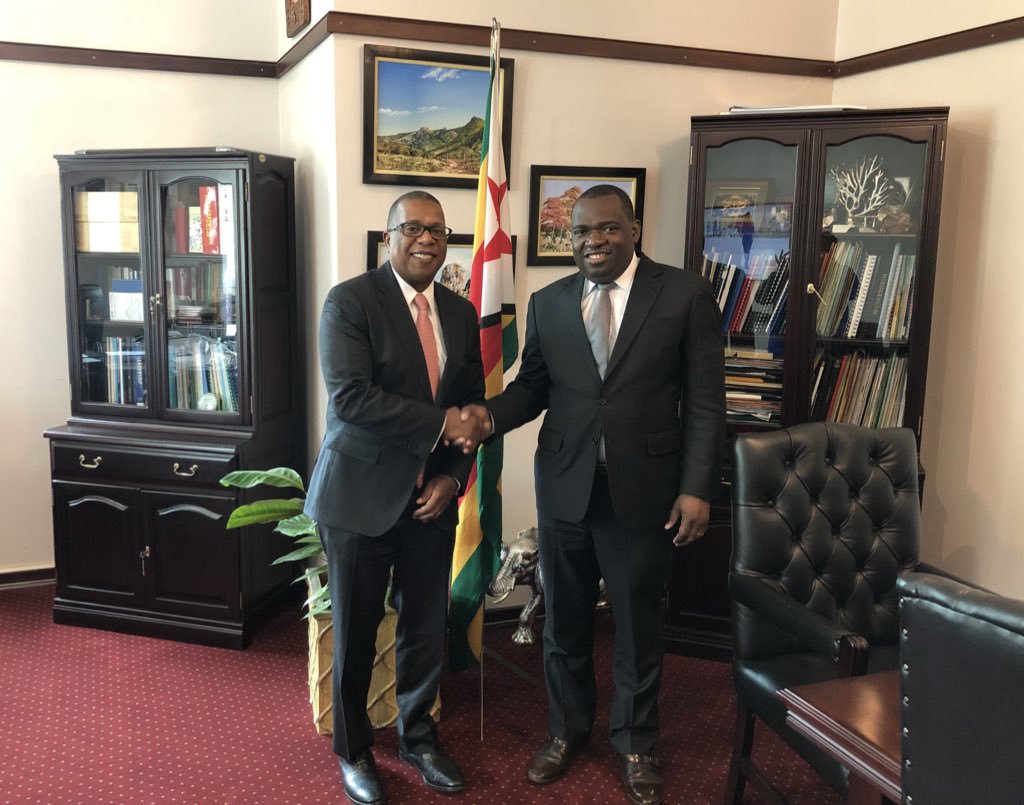Relations between Zimbabwe and the United States which have not been good over the years following the slapping of the former with economic sanctions in early 2000 have further deteriorated following the US envoy’s recent remarks on the anti-sanctions march, which have riled the government.
On October 25, Zimbabwe, in solidarity with the Southern African Development Community (SADC), staged an anti-sanctions march calling for the removal of sanctions imposed on the country by the United States and the European Union.
US ambassador to Zimbabwe, Brian Nichols, last week, dismissed government claims that Western sanctions were behind the country’s economic meltdown and instead said the hemorrhage was being fuelled by high-profile corruption, economic mismanagement, failure to respect human rights, among other vices.
“Blaming sanctions is a convenient scapegoat to distract the public from the real reasons behind Zimbabwe’s economic challenges — corruption, economic mismanagement, and failure to respect human rights and uphold the rule of law,” said Nichols.
“What then is holding Zimbabwe back? It is not sanctions. There are only 141 Zimbabwean people and companies on the US sanctions list. That’s right, just 141, in a country of 16 million. They are on the list for good reason.”
He added: “There is no US trade embargo on Zimbabwe. American companies are interested in investing in Zimbabwe but are deterred by the massive levels of corruption, economic uncertainty, and weak rule of law. So, investors turn to other promising opportunities in the region and wait for the country to embrace the political and economic reforms that would make it a more attractive destination.”
This has however not gone well down with the President Emmerson Mnangagwa-led administration which also fired a salvo at the envoy.
In a statement on Thursday, Foreign Affairs and International Trade Minister Sibusiso Moyo said Nichols’ sentiments did not only lack respect for diplomatic etiquette but were also an abuse of diplomatic privileges.
“Moreover, an ambassador is not permitted to conduct himself like a political opposition member, in total disregard of all norms of permissible diplomatic conduct,” said Moyo.
He said should that behaviour continue the government was bound to lose patience, something likely to negatively impact on the ongoing dialogue between the US and Zimbabwe.
“We want dialogue with all well-meaning countries as part of our re-engagement efforts. But our magnanimity should not be abused,” said Moyo
“We have the means to bring all of this to an end, should we deem it necessary.”
Political analyst, Thomas Sithole, said the confrontation between the two governments was unavoidable given Zimbabwe’s disrespect of human rights.
“The feud was bound to happen given our government’s continued disrespect of human rights and lack of political will towards the reform agenda,” Sithole told CITE.
“It was only a matter of time. The relations between the two countries have been sour for quite some time now and the USA is one of the countries that were never fooled by the new dispensation rhetoric. They have always insisted on genuine political reforms and are losing patience due to inaction in that regard.”
Sipho Nyoni, another political analyst, said it was improper for ZANU-PF to claim the US ambassador had abused diplomatic privileges.
“The anti-sanctions rally was a provocative statement from the ZANU-PF government and on its very own (the government) broke all or any form of diplomatic etiquette,” said Nyoni.
“This spat shows or tells us that relations between the two countries are at their lowest ebb and might perhaps be difficult to mend in the long run unless there is a change of government.”
He added that ordinary citizens were bearing the brunt of the diplomatic spat between the two countries.

